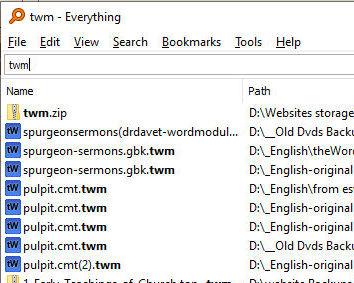Theological Dictionary, Two Volumes in One
Buck wrote A Theological Dictionary (1802). The first edition appeared in London in 2 vols., to which John Collett Ryland was a major contributor; there were further British and American editions. He was also author of other religious works, and a Collection of Anecdotes, 1799, which went through numerous editions. Charles Buck (1771–1815) was an English Independent minister and theological writer, known for his Theological Dictionary. Buck’s Theological Dictionary still contains some interesting material, especially when it comes to Religious Sects.
Buck’s Dictionary was a significant work in antebellum America, running to 50 reprints. It was conservative and evangelical in editorial line, making it a counterbalance to the A View of Religions (1817) of Hannah Adams which was of Unitarian and liberal tendency. Adams’s British editor, the Calvinist bookseller Thomas Williams, was much influenced by Buck’s work in producing his Dictionary of All Religions. Adams then adopted some of the ideas she found in Williams. George Bush (biblical scholar), who edited an American edition of 1830, stated that
Notices of all or nearly all the existing religious denominations of the United States are given, accompanied with historical sketches and ecclesiastical statistics.
Richard Knight of Tennessee, who became a Baptist preacher, was taught to read by his wife, but “never got further in ‘book learning’ than the Bible and hymn book, and Buck’s Theological Dictionary.”[48] It was cited as an authority by Finis Ewing; J. L. Wilson, an opponent, attacked its article on ministerial education. The American editions by William Woodward were expanded and revised: Ewing and Richard Donnell had written on the Cumberland Presbyterian Church for the 1814 edition. Woodward had produced an edition by 1807, which was adopted as a textbook.
A British reissue was edited by Ebenezer Henderson. For the 1833 edition, Henderson added 500 articles. He oversaw a further edition, in 1841. There was a German translation by Joseph Ehrenfried.

Bounds - Praying Pulpit begets a Praying Pew is a single chapter work on prayer in the pulpit causing prayer in the pew.
Read: Bounds - Praying Pulpit begets a Praying Pew.
Advertisement
 Helpful Windows User Tip for "Searching Everything" on your PC. The Everything Search utility program is a freeware file search utility that is superfast and very useful for finding all occurrences of a file. It takes about 3-6 seconds to start, but after that, every search is just about instantaneous. Very fast, very useful. I highly recommend you download this free PC utility program if you ever have problems finding a file on your PC Computer.
Helpful Windows User Tip for "Searching Everything" on your PC. The Everything Search utility program is a freeware file search utility that is superfast and very useful for finding all occurrences of a file. It takes about 3-6 seconds to start, but after that, every search is just about instantaneous. Very fast, very useful. I highly recommend you download this free PC utility program if you ever have problems finding a file on your PC Computer.
twtutorial.com Helpful Tip "Everything Search".
Note: You can grab and drop files from this tool to other windows.

No Comments
Comments are closed.